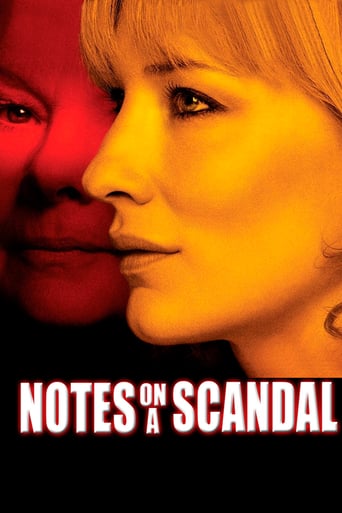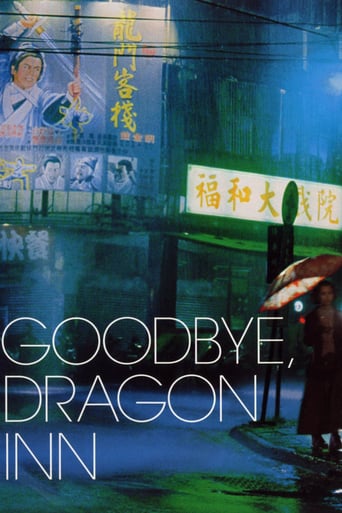
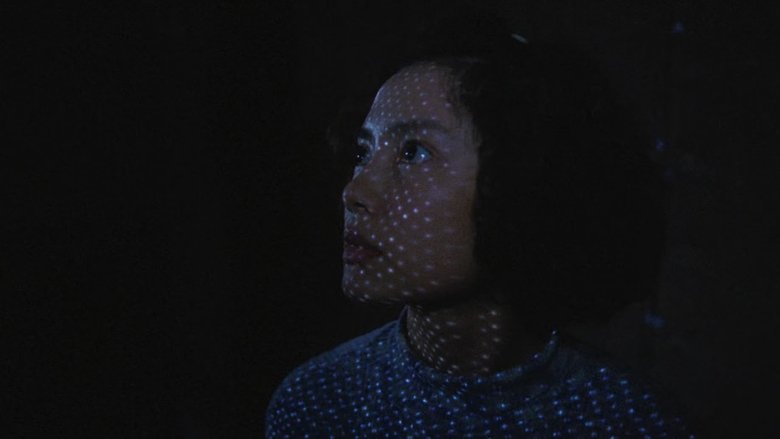
Goodbye, Dragon Inn (2003)
On a dark and rainy night, a historic and regal Taipei cinema sees its final film: 1967 martial arts feature "Dragon Inn". As the film plays, the lives of the theater's various employees and patrons intersect, and two ghostly actors arrive to mourn the passing of an era.
Watch Trailer
Cast
Similar titles
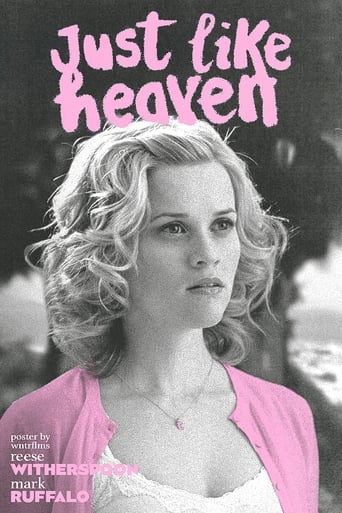
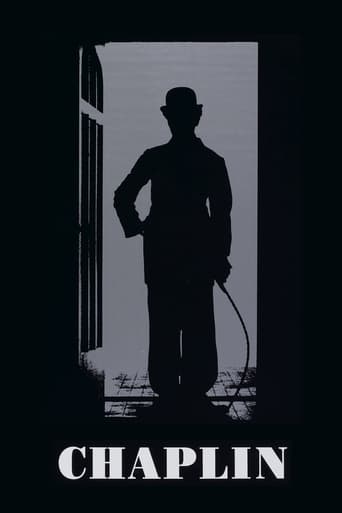
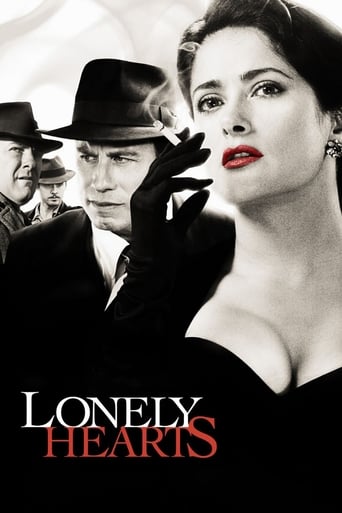
Reviews
Best movie of this year hands down!
hyped garbage
A Masterpiece!
At first rather annoying in its heavy emphasis on reenactments, this movie ultimately proves fascinating, simply because the complicated, highly dramatic tale it tells still almost defies belief.
There are few cinemas which deal with the obsession of cinema and cinema halls and yet showing the decaying of cinematic culture as new technology has wiped the projector based 'Run-of-the-mill cinema halls. Goodbye, Dragon Inn is a cinema which stands for the urban alienation of people, the decaying culture of cinema and also showing in an uncanny style of cinematography the audience in this case most of them are homosexuals or people seeking sexual companionship. Goodbye dragon inn is stripped of bare essentials such as emotions, jazzy editing and any sort of background music. There is no plot except for a cinema hall showing a martial arts movie in a rainy day over Taiwan. The event of cinema takes place over 2 - 3 hours and has unnamed characters. One lady ticket collector who with a limp manages the theater but is not the owner. Tsai in a unique and subtle way shows the audience during the course of the movie where there is hardly a few people. One of them seeking to brush with other men in the cinema hall and is somewhat repulsed by women or their gross antiques of chewing food in a noisily fashion in the theater. But the whole film has so much more and is in the least entertaining. This cinema is what one would call life reflecting art. This is a cinema made for people reflecting the future in a mysterious way where decadence has made a lot of cinema halls go out of business. Everyone talks of nostalgia but there is none when it comes to reviving old cinema in the halls. It makes us wonder if a martial arts movie cannot drag a handful audience in a rainy day, can a n obscure or lesser known cinema do any better in a normal day. Tsai also takes a swoop on the people who go their for their vested interests. Surprisingly most of them are homosexuals.A very slow pacing cinema which has a few scenes and done in a extremely minimalist fashion unflattering it in the same instance. Though it has long shot of an empty cinema hall for a few minutes which baffled me. But it made me wonder, does the director wants to show the emptiness of it ? This is one of the best films which I have seen which deals with cinema. Cinema is dead, Long Live Cinema.
Somewhere in the world, in some run down town, you can bet there's a cinema that's on its final reel, not just of the night, but of its existence. It's a sad fact of life that everything must come to an end at some point, and one that cinema itself has taken upon itself to dwell within too many times. Yet when taken into the context of film and the cinema-going experience itself, very little has been discussed or expressed up on the big screen in regards. In what is undoubtedly one of the most original experiences you'll never have in a theatre (but rather on your TV set, because nowhere will play this ever again, at least this side of the Pacific), Goodbye Dragon Inn is a somber and reflective piece of film that takes its ever-sweet time at documenting the final breaths of a small neglected film-house somewhere in China through long, documentive shots that linger on long after the projector dims. Filmed on location at a cinema that would, ironically, close its doors less than a year later, Ming-liang Tsai delivers a piece of art that mimics life which in turn mimics art—it's daring, and it's bold, in just about all the least daring and bold ways imaginable.Set over the course of eighty minutes whilst classic Kung-Fu action flick Dragon Inn plays out its final screening, Goodbye Dragon Inn serves as something of an elegy or funeral for the dying experience that is going to see a movie. Make no mistake, Ming-liang Tsai doesn't coat anything here in obtuse shades of rose-tinted romance, nor does he make light of the spectacle either. Instead, the director manages to fuse the movie's distinctly reflective mood with that of humour and little minute observations that many cinephiles will be sure to get a kick out of. Indeed, amongst some of the film's most endearing moments is a simple sequence which sees one member of the audience trapped in between a pair of feet over the headrest next to him, and a weird guy obviously trying to make a pass; and this is after moving away from two obnoxious face- stuffers. Even in a half-dead cinema, it would seem, you can't escape its inevitable drawbacks.Even with these brief moments of humour however, the vast majority of the movie remains static and elongated to the point where much sense of reality is lost. Again echoing the experience of going to see a movie and getting lost in the un-reality of that glow coming at you from the surrounding darkness, Ming-liang Tsai embodies his subject matter with a thorough sense of commitment. Characters, rather than feature as living, breathing, a-list stars and personas, come across more as b-lister background characters—neglected to speaking only forty minutes into the feature, and then even after that, speaking just a few more some twenty minutes later. Scenes, which can sometimes last for minutes on end with next to no movement on the screen whatsoever, drag time and yet manage to keep you there, watching and waiting to see what magic perhaps lies somewhere in that mysterious room. Putting a sharp restraint on dialogue and plot or action, the director forces the viewer to move at his pace, which is a slow burning funeral march—mournful yet charming at the same time.No matter how you approach Ming-liang Tsai's work here however, there remains an unmitigated feeling that what you do experience over the course of these eighty minutes is something special. Not just in what it says, or how it says it, but in how Goodbye Dragon Inn manages to take these otherwise off-putting and easily disgruntling methods of minimalist film-making and in turn fashion them into something really quite captivating and unique; the methodology is simple, yet the results are not. Striking a firm balance between art-house and sentimental naval-gazing upon the medium in which it itself exists, Goodbye Dragon Inn is an original and thought-provoking piece of cinema that signals the final curtain call of a cinematic era with a humble and resolute grin of affection.
I just watched this film in my World Cinema film class. It was very interesting I must say, but I appeared to be the only person in the class to have enjoyed it. Others said the movie was too slow, had no plot, and was boring.I understand where they're coming from, this type of film has a specific target audience. It reminded me of a couple of Gus Van Sant's films, "Elephant" and "Gerry". They were slow-paced and very quiet, nothing really went on, but i love these kinds of movies. Would I recommend watching it? Yes. Would I recommend buying it? No. It's not the type of movie you'll watch more than once or twice. It does get sort of monotonous towards the end, with the extremely long cuts that never moved.But there were some good qualities. For me, the movie was hilarious. It was definitely my kind of humor. There's the gimp girl that works at the theater who we are forced to watch walk up the stairs, limping all along the way. And then, my favorite, was the awkward Japanese boy who watched everybody in the theater. the uncomfortable situations he's put in our hilarious. We think something is going to happen each time, but nothing ever does. But still, that's why it's so hilarious. Definitely not the type of humor for everyone though. If you're the kind that gets bored easily then you'll be too frustrated to appreciate the humor, b/c chances are you'll turn the film off. There was some beautiful composition and cinematography. the different camera angles and distances are interesting for the most part. but again, this is probably something more for film students than the average viewer.So, overall I think this movie is worth a look. Depending on who you are, you may find it funny, but you may find it sad b/c of how lonely the characters are, esp. the Japanese boy and the gimp. This film will make you uncomfortable and you may squirm at times. If you like that in a film then I'd recommend this.
"Good Bye, Dragon Inn (Bu san)" is something of a Taiwanese "Cinema Paradiso" and "Last Picture Show" in its love of old movie theaters and evoking the unfulfilled longings we project onto movies and their showcases.We take refuge (and I have no idea how we were supposed to know that one of the characters we are following in is a Japanese tourist, per the IMDb plot description) during a rain storm on the last night at a huge theater, and the camera slowly leads us through every inch of the place. The vast scale of the place is brought home to us (and it will have less impact when not seen on a big screen) as virtually every inch is navigated painfully by a lame employee, clumping (as we only hear ambient sounds) up and down all those stairs, from the red velveteen seats around every nook and cranny and down long hallways and seedy passageways.I don't know if only a Western viewer thinks at first one character is a pedophile or another a transvestite, as the theater certainly looks like the old ones that were in Times Square, or if writer/director Ming-liang Tsai is toying with all of us, as he brings other assignation attempts closer (in what must be the longest time any men have ever spent leaning against a urinal), but they are as unreal as the movie-within-a-movie, the swordplay flick "Dragon Inn" which is just a bit more stilted and corny than the current "Warriors of Heaven and Earth (Tian di ying xiong)."There is one especially lovely moment, within beautiful cinematography throughout, of reaction to the flickering screen when the employee pauses in her rounds to look up at the huge image of the warrior princess and shares our view of the screen with her. Amusingly, the only fulfilled feelings are hunger, as various characters noisily eat a wide variety of refreshments. The projectionist is as much an unseen power as Herr Drosselmeier in "The Nutcracker," as we don't even see him until the theater is almost ready to close. He is as oblivious to interacting with real people as every other member of the sparse audience. The major events in the film are when two characters even acknowledge each other's existence, let alone speak the only three lines or so of spoken dialogue in the entire film, reiterating what we've seen visually -- "No one goes to the movies anymore." The closing nostalgic pop song is jarringly intrusive at first to this quiet film, but the lyrics are very appropriate.





